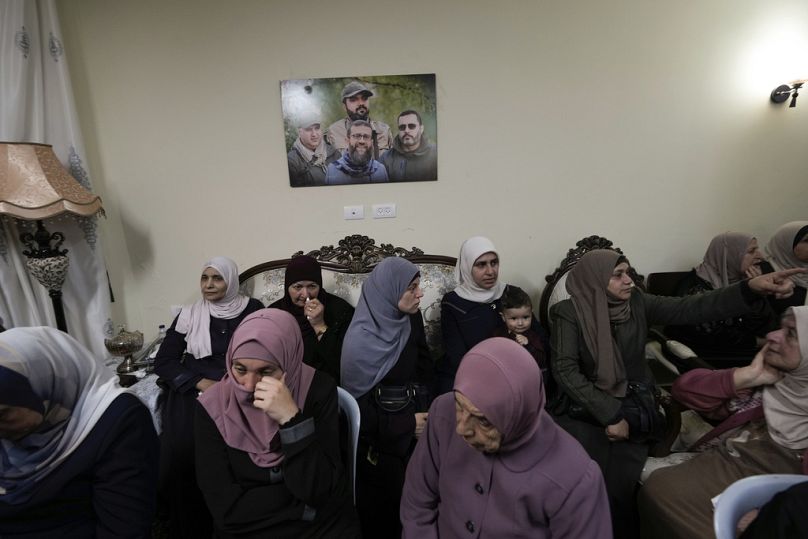
Khader Adnan, a leader in the Islamic Jihad group, is the first Palestinian prisoner to die since Palestinian inmates began staging protracted hunger strikes about a decade ago. His death after an 86-day hunger strike raises the potential for renewed violence between Israel and Palestinian militant groups as violence surges in the West Bank.
Shortly after his death was announced, Palestinian militants in the Gaza Strip fired a volley of rockets into southern Israel. Palestinians called for a general strike in the West Bank and the Gaza Strip, and protests were expected later in the day.
Itamar Ben-Gvir, Israel’s ultranationalist minister in charge of prisons, raised the alert level in those facilities in what his office described as a precautionary measure against riots.

Palestinian prisoners have for years gone on lengthy hunger strikes to protest their detentions and to seek concessions from Israel. The tactic has become a last recourse for resistance against what Palestinians see as unjust incarcerations. The prisoners often become dangerously ill by refusing food but deaths are rare.
Islamic Jihad spokesman Dawood Shahab called Adnan’s death “a full-fledged crime”,
“The Israeli occupation bears full and direct responsibility,” he said.
Around 200 people gathered outside Adnan’s home in the occupied West Bank town of Arraba, holding signs bearing his image and calling for revenge. Adnan’s widow, Randa Musa, told those gathered outside that “we do not want a single drop of bloodshed” in response to his death.
“We do not want rockets to be fired or a following strike on Gaza,” she urged the crowd in an impassioned address.
Palestinian prisoners are seen as national heroes and any perceived threat to them in Israeli detention can touch off tensions or violence. Israel has often conceded to demands to release prisoners or shorten their sentences after they staged life-threatening hunger strikes. Israel sees Adnan and other Palestinian prisoners as security threats accused of involvement in deadly attacks or plots.
Adnan, 45, began his strike shortly after being arrested on 5 February.
Over the years, he has been repeatedly arrested by Israel and became a symbol of steadfastness in the face of Israel’s occupation when he began staging lengthy hunger strikes just over a decade ago.
Among his six hunger strikes was a 66-day protest in 2012, and two other strikes in 2015 and 2018 that lasted 56 and 58 days respectively. Israel released Adnan after the 2015 strike. He is credited with turning hunger strikes into a recurring tool for protest among Palestinian detainees and a helpful bargaining chip against Israeli authorities.

According to the Palestinian Prisoners Club, which represents former and current prisoners, Adnan was arrested 12 times and spent about eight years in Israeli prisons, most of that time under so-called administrative detention, in which suspects are held indefinitely without charge or trial.
His death comes as Israel is led by its most right-wing government ever, and as prisons and Palestinian prisoners are overseen by Ben-Gvir, who has previously tightened restrictions on the Palestinian inmates, including shortening their shower time and closing prison bakeries.
Ben-Gvir called on prison officials to exhibit “zero-tolerance toward hunger strikes and unrest in security prisons” and ordered prisoners be confined to their cells.
Israel is currently holding more than 1,000 Palestinian detainees without charge or trial, the highest number since 2003, according to the Israeli human rights group HaMoked.
That figure has grown in the past year as Israel has carried out almost nightly arrest raids in the occupied West Bank in the wake of a string of deadly Palestinian attacks in Israel in early 2022.





